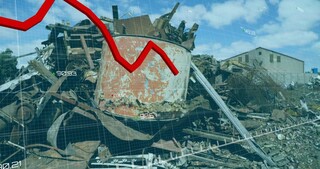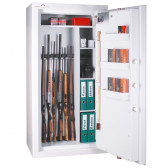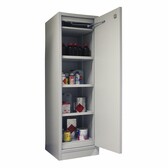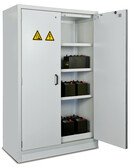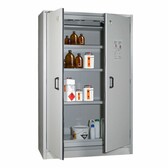The last few years have not been kind to our world. We have become somewhat accustomed to a certain constancy, the security of everyday life free of crises. Our elderly parents or grandparents would even say that we have become jaded and, if the electricity and Internet were switched off, we wouldn't be able to boil water for tea. There is, of course, a lot of exaggeration in this, but let's take a look at our everyday life – we pay with Blik*, with our smartphones, more and more of us do not carry money in cash at all. Yes, since state digital services are being developed, we increasingly leave documents at home, such as our identity card or driving licence. But what happens if we are actually disconnected from the power supply?
Money – what is it?
To understand why the presence of physical money in the economy is so important, it is worth answering a seemingly simple but important question: what is money and what is it used for in everyday life?
The history of money
The earliest form of trade was the so-called barter, i.e. the exchange of one commodity for another, and the value of one and the other was strongly discretionary. When using barter, people had to deal with a number of technical problems, ranging from establishing to the satisfaction of both parties what an asset represented in value to the complexity of transportation.
Traditionally, the invention of money is attributed to the ancient Phoenicians building their empire in the eastern Mediterranean. Today we know that there were various places where barter was independently converted into items resembling today's cash. What was the guiding principle?
Money must fulfil several characteristics that make it convenient for thousands of people to use:
• durability: money must be sturdy and resistant to damage as it passes from hand to hand over many years.
• size: cash must be in the form of a small object that fits easily into a pocket or bag, while facilitating precise counting. Such characteristics were fulfilled, for example, by the small shells that were still used in colonial times in Africa and Asia.
• universally recognised value: originally, money was made of precious metals such as gold and, more commonly, silver. Over the years, the value of the gold in a given coin decreased until the invention and spread of paper money, but even today many currencies are still based on physical gold resources.
The history of money can therefore be divided into four periods:
• natural money – a commodity exchanged for another commodity,
• bullion money – coins or bars of precious metals, also valuables or jewellery,
• paper money – de facto paper money issued by a sovereign authority,
• electronic money – which has no physical form, including cryptocurrencies.
Money in the economy
But why has money in the form of cash become such an indispensable part of human civilisation? The answer to this question has several components.
Money came into being as an offshoot of expanding deep-sea trade, where a form of payment was needed to ensure the security of transactions and, at the same time, one that could be stored for the long time needed to travel from one port to another.
The growing trade was accompanied by state-building processes, and with them the need to collect taxes, to budget for the costs of maintaining the state administration, the army, and the personal property of the ruler. With the invention of money, the latter gained a tool for manifesting and enforcing his sovereignty and the minting of coinage even today is one of the basic monopolies of any authority. The image of the king on the coin (or the signature of the President of the National Bank of Poland on the banknote) is confirmation of the value of the money, and whoever commits forgery becomes a criminal prosecuted for insulting majesty. This is how it was and still is today.
Books can be written about the social functions of money, and some pretty good ones have been written, but for us, in the context of this article, what is important is its utilitarian function. After all, it is physically money that expresses the value of everything we surround ourselves with, what we eat, wear and travel with in the simplest way.
We also recommend: Where to put your money? Ways to secure your company's assets
Crisis
OK, but why is it so important for money in the form of physical cash to remain in the economic bloodstream?
Let's go back for a moment to the beginning of the article and the paragraph about the grandmother prophesying the end of our civilisation and try to imagine this in earnest. Let us use the recent flooding in Silesia as a crisis circumstance. Here, from one hour to the next, we are cut off from the rest of the world. Water destroys roads, the power supply goes out, and for several days we live with what we have in our rucksacks. There is no power, so even after the flood wave has passed we will not be able to buy anything, the payment terminals do not work, there are no ATMs or they are broken. We supposedly have money in our account, but the mobile network doesn't work, so no mobile payment will go through, Blik won't work. Besides, even a survival backpack equipped with such goodies as a powerbank will not provide us with energy for more than a few days. In the event of a sudden evacuation to a safe area, we have nothing with which to pay for anything and are dependent on the help of others.
And yet, not long ago and not far away, we had another, much more drastic example where, overnight, you have to drop everything and, with what you manage to stuff into your bags and pockets, run away from bombs and tanks. In such a case, it is much better to have at least some cash and, in extreme cases, valuables with which to buy food, fuel or medicine, than money in a bank account that may cease to exist in a week's time.
Besides, you don't need a flood or a war for such a situation to occur, just an exceptionally hot summer and an overload of air conditioners on the electricity grid to completely paralyse our normal life.
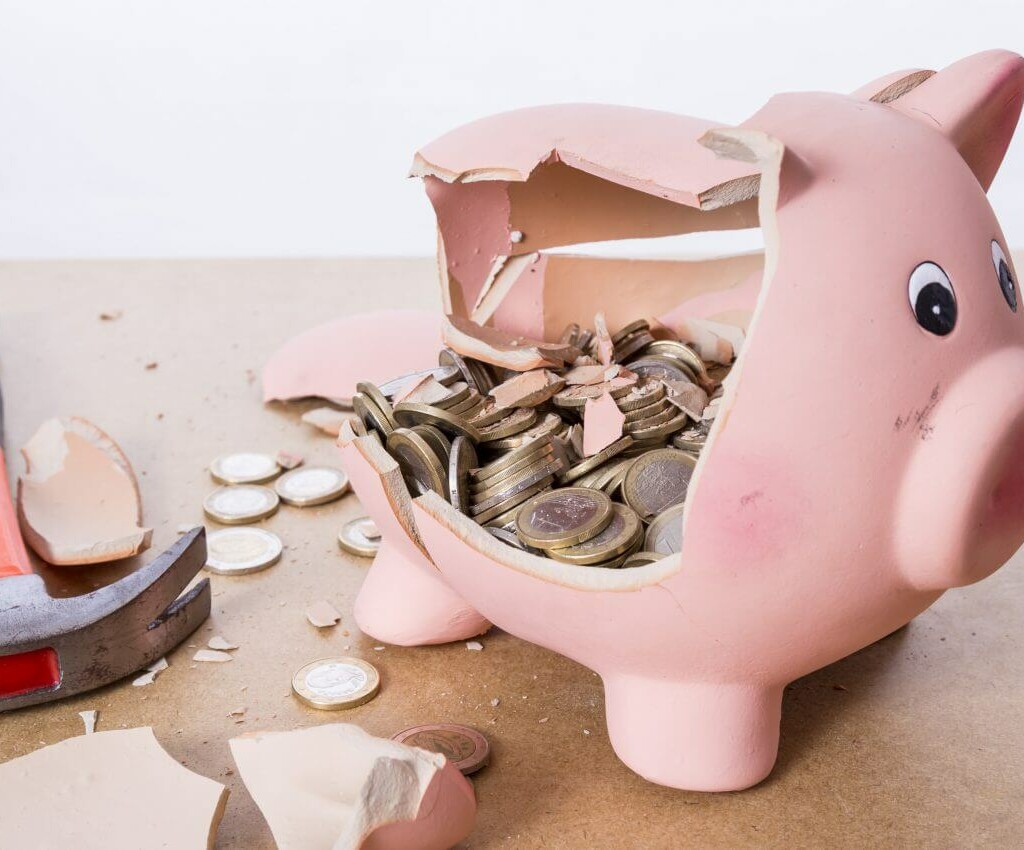
The home safe and the crisis
Keeping cash, valuables, jewellery and other valuables or documents in a safe is as important in a crisis as the presence of physical money in your pocket. Why? Because every crisis is accompanied by the evil side of human nature – greed and the desire to enrich oneself by hurting others.
Let us return to the example of the flood and use a concrete situation. A jewellery shop, destroyed by the flood wave and abandoned by the owner, fell victim to looters. After the water subsided, the owner found that a burglary had taken place and literally all valuable items had been stolen.
In the face of an element such as a flood, most of what she had in her living room would have been destroyed by flooding, but if the most valuable goods had been placed in a safe that was heavy enough and of a high resistance class – we have and are happy to offer models weighing more than 300 kg – the chances are that the jewellery or other items placed in the safe would have survived both the flood and the looters' attack. After all, in the midst of all the chaos around and the lack of equipment necessary to carry out a burglary, an armoured safe weighing several hundred kilograms would be a much riskier target than loose items lying around.
Check out more: Money safe – which one and why choose?
Summary
You never know when an emergency situation will strike and you will have to flee quickly, leaving your entire life's possessions at the mercy of the elements or conflict. However, every crisis comes to an end at some point, and it would be good to be able to say when you return home that you have chosen solid security to store your valuables.
A home safe is undoubtedly such a security device. We offer high-quality models, including fireproof ones, in which you can keep not only your cash reserves, but also items of sentimental value, documents or jewellery.
Contact us and we will tell you how to make the best choice when selecting a home safe.
* Blik is a Polish innovative system for instant payments based on mobile banking.
Keeping cash on hand
Despite the growing popularity of electronic payments, there is a tendency to keep some cash with you at all times. The amounts may vary and depend on us, but in any case, it is worthwhile to be properly prepared to store cash. After all, opportunity makes a thief, but more about that in a moment.
A cash safe is the simplest and most effective way to keep your money secure. In such a safe, of course, you can store cash, valuables, jewellery, but also important documents, securities, wills, deeds and other office documents.
Home safes are made from high-quality materials and their burglary resistance level is expressed by the security class (or resistance grade) according to European standard EN 1143-1. The higher the security class, the better. A word of caution here: avoid so-called mini safes. Lightweight, commercially available safes do not even provide basic theft protection. The lowest price is a very bad criterion, so when choosing a safe for your money, important documents and valuables, use your wits, not your wallet.
Depending on your individual needs, we can personalise your home safe, choose the type of lock, while the number of shelves depends on the size of the safe as such.
You can equip your money safe with a key lock, a mechanical combination lock or an electronic lock. The level of security will not be affected, both keys and ciphers are secure, but keyless locks are much simpler and more convenient to use.
You can mount a money safe to the floor as well as to the wall. Fireproof safes are an exception - their structure and certifications do not allow them to be wall-mounted. You can hide a home safe anywhere, as long as it can be securely anchored there. Be sure to check for any water, gas or electrical installations.
